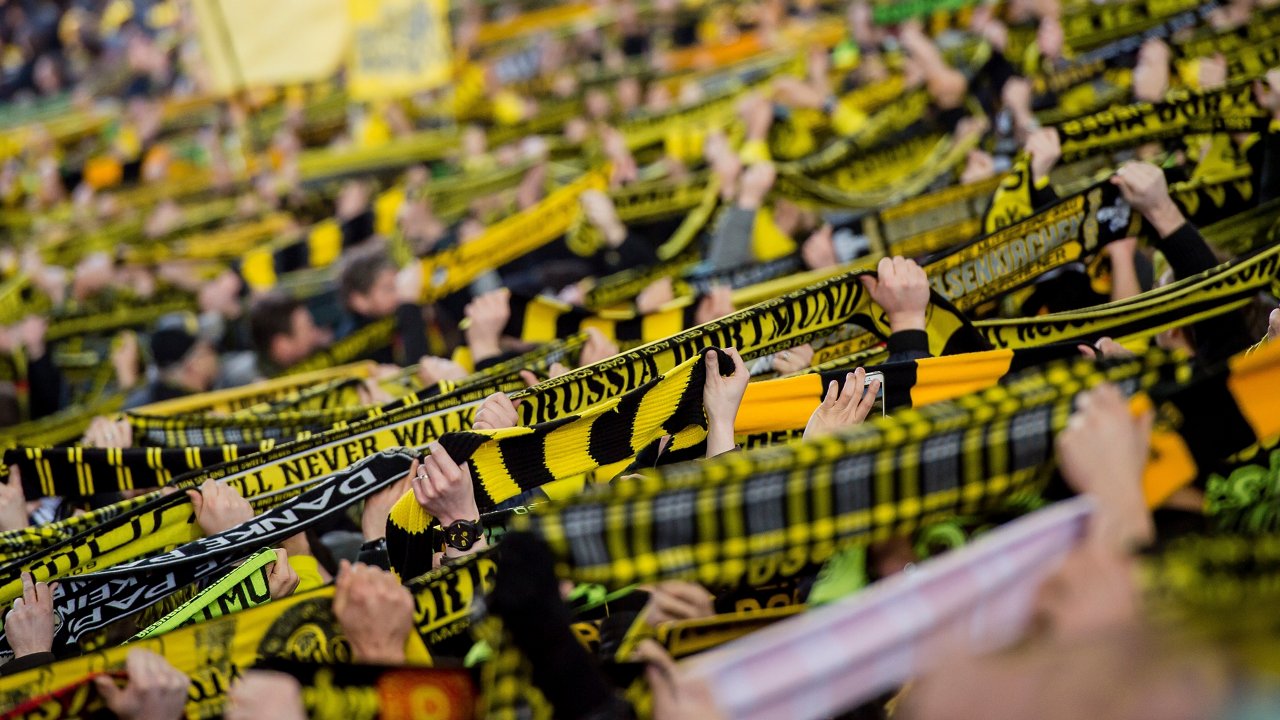1929 – The first German national player
1936 marked the ascent to the Gauliga. For 36 years, until the Bundesliga relegation in 1972, BVB remained in the top flight. August Lenz became the first Borusse to wear the DFB jersey. And in the cup, Borussia Dortmund made its first highly regarded sporting statements.
The game with the round leather continued to thrive; the number of clubs and thus leagues increased. Consequently, the Ballspielverein briefly found itself in the third tier as a member of the 2nd Bezirksklasse. However, fourth place in the 1929/30 season was enough for promotion.
In 1933, the Nazi regime introduced the Gauligen, divided into 16 divisions, with Westfalen represented by ten clubs. Initially absent from the list was BVB. However, in 1936, the club achieved promotion to the circle of a total of 133 teams nationwide that could be called "top-class". A goal by August Lenz secured participation in the promotion round with a 2-2 draw against DSC Hagen, which Borussia finished unbeaten in second place behind SV Rotthausen, with five wins and five draws.
The team's coach in the initial weeks of the 1935/36 season was Ernst Kuzorra, who gained fame and honor as a player for Schalke 04 and initially filled in for his brother-in-law Fritz Thelen, who could only assume the position with a delay. During the Nazi regime, there was a certain "truce" in the club's leadership, which was and is characterized by anti-fascism. The common interest prevailed. Among the sporting problems was the forced move from the "Weiße Wiese" to the "Rote Erde" stadium in 1937, as there was a lack of training facilities for the Borussen, who now had their first national player: August Lenz made his debut on April 28, 1935, in the international match against Belgium (6-1). He scored two goals in this match.
Borussia Dortmund first attracted attention on a national level in the Tschammer-Pokal, the precursor to today's DFB-Pokal. On August 29, 1937, BVB faced Hamburger Sportverein. BVB won 3-1, and in the next round, they won the away match against SV Werder Bremen with a score of 4-3 after extra time. After defeating Duisburg 08, the Black and Yellows reached the quarterfinals against SV Waldhof Mannheim, which they unfortunately lost 3-4 on November 14, 1937.
Anecdotes from the Decade
Belgium-Germany 1:6 - Lenz debut with two goals
The yesterday's guest appearance of the German national team in the Belgian capital Brussels turned into a demonstration of German football artistry. Belgium unexpectedly lost with a clear 1:6 goals. A triumphant debut in the DFB formation of Reich coach Prof. Otto Nerz, as few internationals have experienced before, was celebrated by the young Dortmund player August Lenz. Despite being entirely unfamiliar with the international environment (his club Borussia Dortmund is second division), despite hardly knowing or knowing only a little about his teammates, and despite Germany being occasionally pressed into defense, Lenz stormed to the ball with astonishing speed and inspiring freshness across the field, and his cannon shots thundered around the Belgian goal.
Two found their mark - and precisely at critical moments when the game was highly unfavorable for Germany. The 6:1 scoreline suggests an easy victory, yet we have rarely had to fight for success as hard as this time. The blond center forward Lenz thus splendidly fulfilled the high expectations placed on him. He is a very productive performer who naturally did not miss the opportunity to emphatically highlight his tremendous shooting power and quick grasp of every opportunity with those two goals. August Lenz is unlikely to have worn the national dress for the last time.

